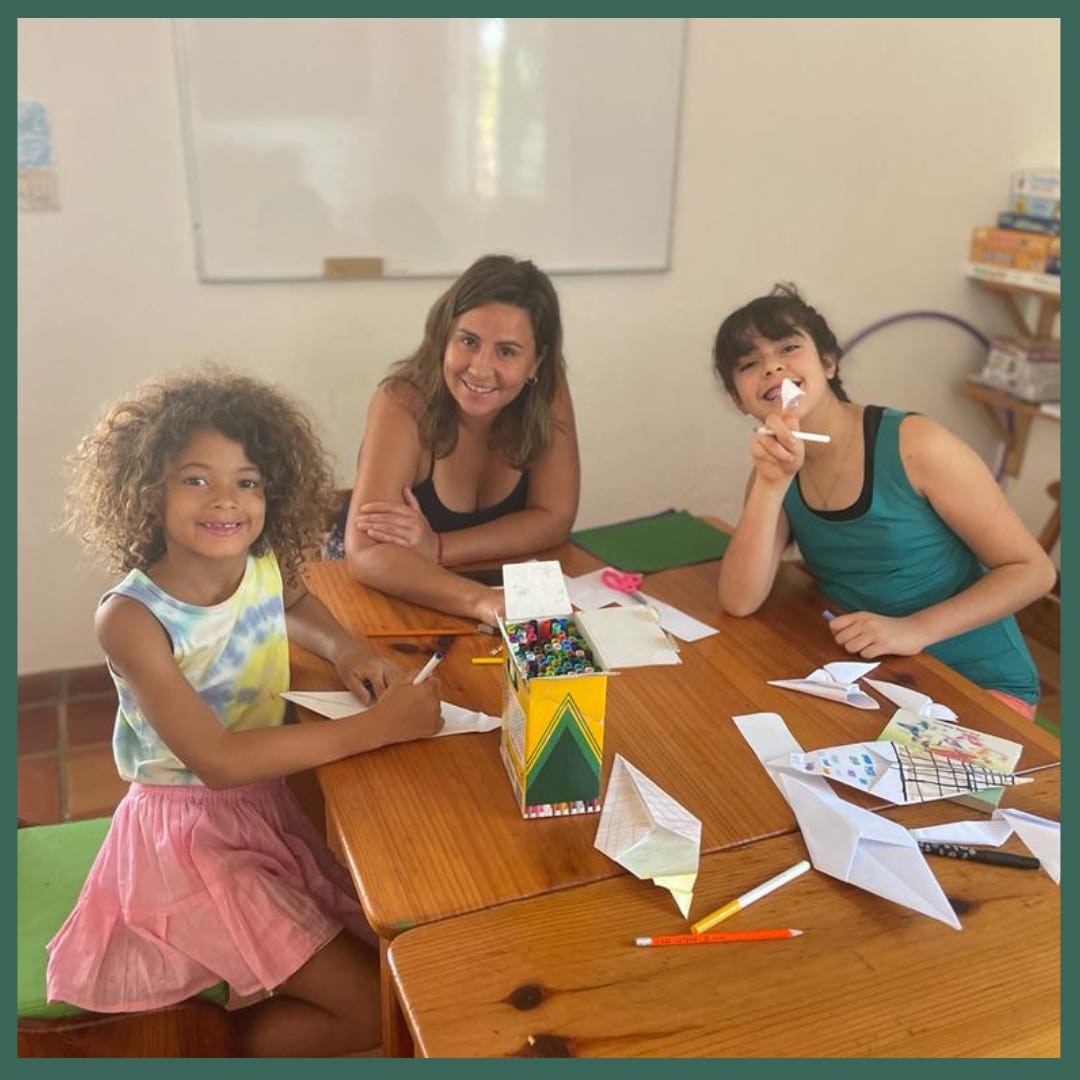Beyond Urgency: The Power of Perspective in Facilitation
Facilitation isn’t about having the answers. It’s about holding the space where new answers can emerge.
But what happens when we (facilitators, educators, and guides) fall into the trap of urgency? When we start fixing instead of listening, directing instead of attuning, controlling instead of trusting?
We don’t mean to. We care deeply about young people. We want to do our best for them. But urgency - this subtle yet pervasive conditioning - has a way of creeping in. It distorts our ability to be present, to trust, to hold space for real growth.
In self-directed education (SDE) and other unconventional learning spaces, we talk about trust, autonomy, and relationship-based learning. But if we don’t actively examine our own conditioned responses, we risk reproducing the very patterns we claim to be dismantling.
So the question is: How do we shift?
The Trap of Urgency: Where It Comes From & Why It’s a Problem
We live in a culture obsessed with outcomes, efficiency, and fixing. We’ve been conditioned, often unconsciously, to measure success through external validation: progress, productivity, results. It’s a legacy of conventional schooling, of hierarchical systems, of deep cultural narratives that tell us we must prove our worth by what we produce.
For facilitators, this often looks like:
Rushing to “help” a young person figure something out instead of letting them wrestle with it.
Feeling pressure to create the perfect environment instead of trusting what naturally emerges.
Trying to convince skeptical parents or colleagues that SDE works instead of modeling it.
Seeing disengagement, conflict, or resistance as problems to solve rather than expressions of unmet needs.
Urgency tricks us into believing that if we just do more, try harder, or control the situation better, everything will fall into place. But in reality, it does the opposite. It pulls us out of presence. It makes us reactive instead of responsive. It creates tension where there could be trust.
Perspective Shifts: A New Way to See, A New Way to Facilitate
What if, instead of focusing on what’s wrong, we asked:
What else is true?
This is not about bypassing challenges or pretending everything is fine. It’s about expanding our awareness: about holding both the challenge and the possibility at the same time.
A young person is struggling in a group dynamic?
Yes, there’s conflict. But what else is true? They are learning about relationships in real-time.
A parent is skeptical about self-directed learning?
Yes, they have doubts. But what else is true? They care deeply about their young person.
You feel like you’re failing as a facilitator?
Yes, this is hard work. But what else is true? You are still showing up. Still growing. Still practicing.
These micro-shifts in perspective change how we hold space, how we communicate, and how we show up. When we resist the pull of urgency and widen our view, we create room for trust, autonomy, and true learning to unfold.
The Internal Work: Why We Must Start With Ourselves
It’s one thing to intellectually understand the power of shifting perspective. It’s another to embody it.
As facilitators, we don’t just teach. We model. Young people pick up on our energy, our nervous system, our unspoken beliefs. If we carry urgency, doubt, or control in our bodies, it will seep into the spaces we create.
That’s why the real work starts inside us.
Can we slow down and regulate our own nervous system before reacting?
Can we hold discomfort without rushing to fix it?
Can we trust that learning is happening, even when we can’t see it?
This is why facilitation is not just a skill. It’s a practice. It’s about continually unlearning our conditioning, softening our grasp, and expanding our awareness.
An Invitation: What If We Did This Work Together?
These shifts don’t happen in isolation. We need spaces where we can unpack our conditioning, practice attunement, and support each other in showing up differently.
That’s what The Shift is all about - a community of facilitators, educators, parents and change-makers committed to doing this deep work together.
If this resonates with you, we invite you to join us. Because facilitation isn’t just about young people’s learning - it’s about ours too.
Curious? Let’s talk.





